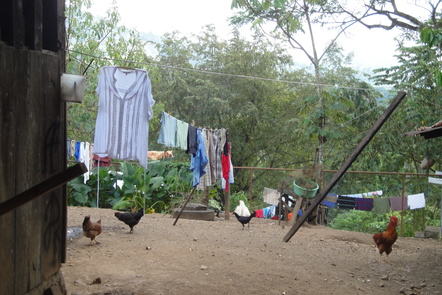
UNESCO
- Start Date: 17 Jun, 2019
- 4 weeks
- Study Content: Videos
Find out how to promote informed policies towards equity and social transformation in Latin America and the Caribbean.
Course Fee: Free
Certificate Cost: See Fees and Eligibility
Introduction
Introduction Video
Course Description
This course is made available through the eLearnAfrica and FutureLearn partnership.
Use strategies to fight against social issues
Latin America and the Caribbean is both the most unequal and the most violent region in the world, which is a constant concern for their governments. Faced with this challenge, a fluid dialogue between social research and public policy is essential.
This course addresses the current regional landscape of inequalities, its links with violence and democracy, and offers transformative strategies to improve social policies and public management.
Also available in Spanish: Desigualdades en América Latina y el Caribe.
The course is aimed at a wide public engaged in social debate and in public action in Latin America and the Caribbean. It may be of particular interest to policy-makers, civil servants, researchers, students, social and industrial action leaders, opinion-makers, activists, and journalists.
El curso también está disponible en español: Desigualdades en América Latina y el Caribe: Investigación, Políticas y Gestión para las Transformaciones Sociales.
Certificate cost may vary. You will be redirected to the host page for cost and payment options.
UNESCO
In 1945, UNESCO was created in order to respond to the firm belief of nations, forged by two world wars in less than a generation, that political and economic agreements are not enough to build a lasting peace. Peace must be established on the basis of humanity’s moral and intellectual solidarity.
UNESCO strives to build networks among nations that enable this kind of solidarity, by:
- Mobilizing for education: so that every child, boy or girl, has access to quality education as a fundamental human right and as a prerequisite for human development.
- Building intercultural understanding: through protection of heritage and support for cultural diversity. UNESCO created the idea of World Heritage to protect sites of outstanding universal value.
- Pursuing scientific cooperation: such as early warning systems for tsunamis or trans-boundary water management agreements, to strengthen ties between nations and societies.
Protecting freedom of expression: an essential condition for democracy, development and human dignity. Today, at a time of increasing global challenges and threats, such as inequality, exclusion, violence and sectarianism, learning to live together among all members of the global community becomes more topical than ever before. Individuals become interculturally competent through learning and life experience for successful living in the modern complexity of our heterogeneous world.
On a daily basis, from its Headquarters and in the Field, UNESCO intervenes to accompany its Member States and all its partners to better understand and address the challenges of our more and more diversified societies, particularly through its intergovernmental Programme for Management of Social Transformations (MOST) as well the Culture of Peace and Non-Violence Programme which include, inter alia, initiatives for democracy and global citizenship, intercultural dialogue, education for peace and human rights and peace-building.
This institution is available on eLearnAfrica through partnership with FutureLearn.
COLLABORATION POLICY
By enrolling in a course on or through eLearnAfrica, you are joining a special worldwide community of learners. The aspiration of eLearnAfrica is to provide anyone with an internet connection access to courses from the best universities and institutions in the world and to provide our learners the best educational experience internet technology enables. You are a part of the community that will help eLearnAfrica achieve this goal. eLearnAfrica depends upon your motivation to learn the material and to do so with honesty and academic integrity. In order to participate in eLearnAfrica, you must agree to the Honor Code below and any additional terms specific to a class.
ELEARNAFRICA HONOR CODE PLEDGE
By enrolling in a course, program, or degree hosted on the eLearnAfrica App or Site, I agree that I will:
-
Complete all tests and assignments on my own, unless collaboration on an assignment is explicitly permitted.
-
Maintain only one user account and not let anyone else use my username and/or password.
-
Not engage in any activity that would dishonestly improve my results, or improve or hurt the results of others.
-
Not post answers to problems that are being used to assess student performance.
-
Abide by any and all requirements of the eLearnAfrica Participants as may regard the expectations of civil or academic behavior or of community standards.
VIOLATIONS
If you are found in violation of the Terms and Conditions or Honor Code, you may be subject to one or more of the following actions:
-
Receiving a zero or no credit for an assignment;
-
Having any certificate earned in the course withheld or revoked;
-
Being unenrolled from a course, learning program or degree program; or
-
Termination of your use of the App and/or Site.
-
Additional actions may be taken at the sole discretion of eLearnAfrica and eLearnAfrica course providers.
No refunds will be issued in the case of any corrective action for such violations.
Honor code violations will be determined at the sole discretion of eLearnAfrica, the Partners, or Members. You will be notified if a determination has been made that you have violated this honor code and you will be informed of the corresponding action to be taken as a result of the violation.
CHANGING THE HONOR CODE
Please note that we review and may make changes to this Honor Code from time to time. Any changes to this Honor Code will be effective immediately upon posting on this page, with an updated effective date. By accessing the App and/or Site after any changes have been made, you signify your agreement on a prospective basis to the modified Honor Code and any changes contained therein. Be sure to return to this page periodically to ensure familiarity with the most current version of this Honor Code.
Effective Date: September 22, 2016
